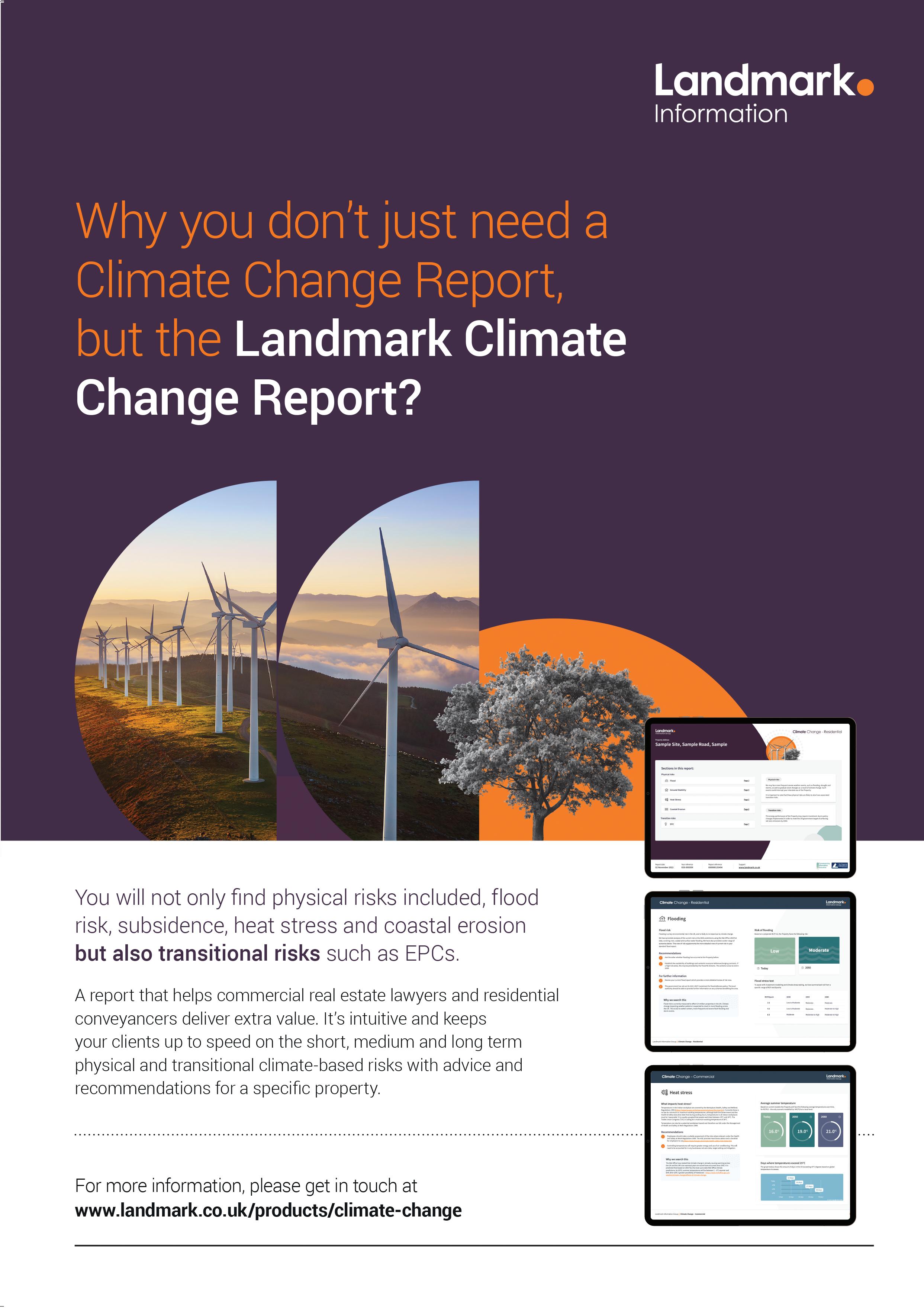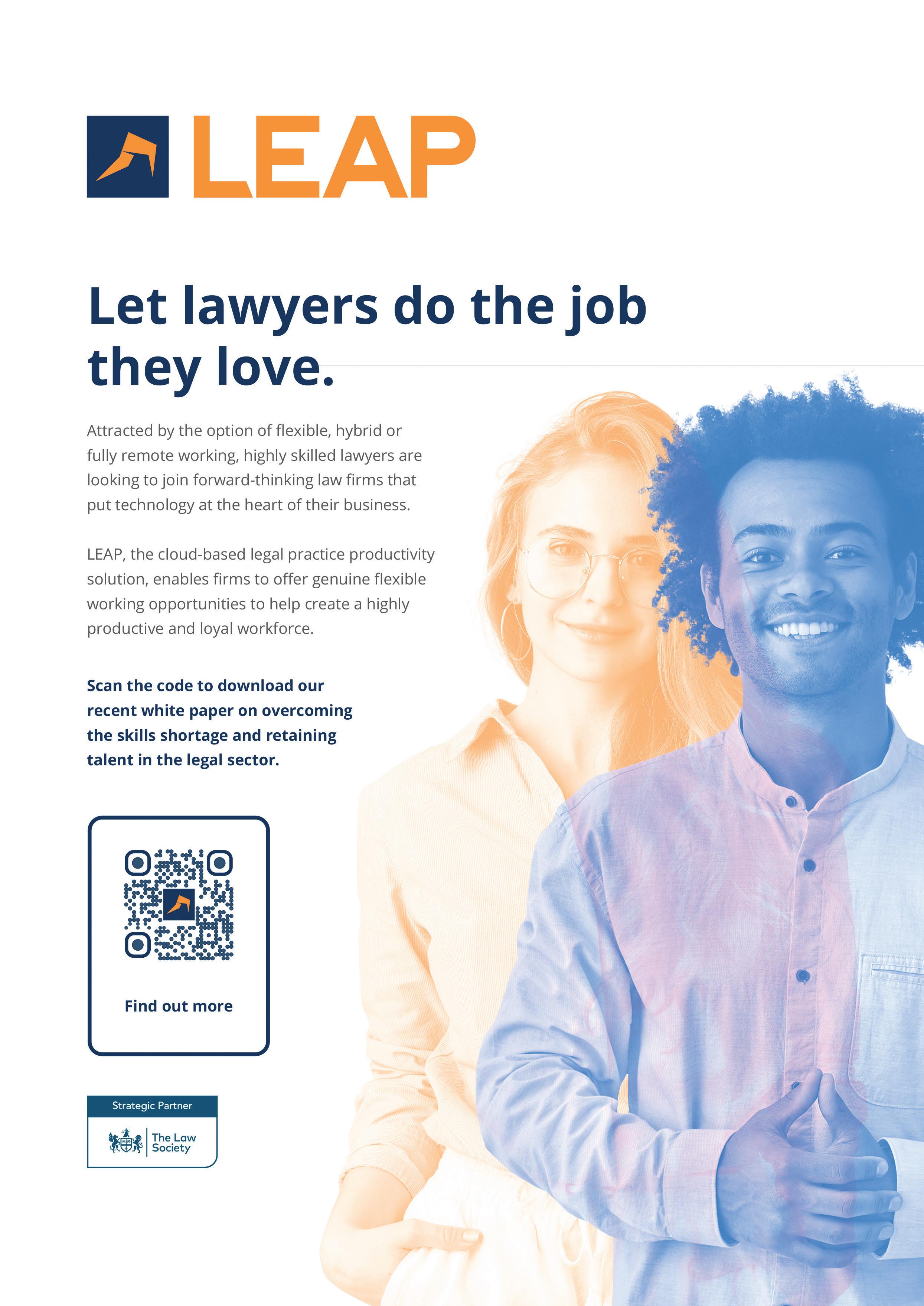











As I write I am looking forward to a fully booked Annual Quiz, this year sponsored by Verify 365 – thank you for your support. I am also organising the Annual Dinner. Tickets are selling well so get your orders in for tickets. Please also get those nominations in for the awards. I have e-mailed the form round and the link is on social media but please just drop me a message if you need them sending again. The deadline is 28th February following which the judging panel will meet and announce a shortlist. The winners will be announced at the dinner on 31st March.
We are still looking for donations for the raffle at the annual dinner please. All proceeds will go to the President’s charity, Derbyshire Mind. Please contact me if you can offer anything.
At the last committee meeting Andy Cash resigned after many years service as crime sub-committee member and also DVP, VP and President in 2016/17. Thank you so much for all your hard work and enthusiasm and for carrying on the family tradition – Andy will no doubt be able to tell me how many of his relatives have served as President of DDLS over the 137 years we have been in existence. We look forward to seeing you at events going forward.
There is a crime update course with Mary Prior KC and Paul Prior from No 36
chambers on 1st March at 5.30pm. Please spread the word and contact me to book your free place. Any other requests for courses please do let me know and I will do my best to organise them.
The final of the Derby City School debate competition will be 15th March at 4pm at the University of Derby Law School. Everyone is welcome. The next committee meeting will follow at 5pm, so why not come to both to see what is happening in your DDLS.
I look forward to seeing you at an event soon. Take care.
Julia Saunders admin@derbylaw.net01283 734989

Officers
President*
Manesha Ruparel Alexander & Co Solicitors LLP Tel: (01332) 600005 mr@aandco.co.uk
Vice-President*
Oliver Maxwell Nelsons 01332 378696 oliver.maxwell@nelsonslaw.co.uk
Immediate Past President*
Julie Skill, Elliot Mather LLP Chesterfield Tel: 01246 231288; julie.skill@elliotmather.co.uk
Deputy Vice-President* Tina Attenborough Attenborough Law, Derby Tel: 01332 558508 tina@attenboroughlaw.co.uk
Honorary Secretary*
Fiona Apthorpe Geldards LLP, Derby Tel: 01332 378335 Fiona.Apthorpe@geldards.com
(*=Ex-Officio)
Parliamentary Liaison Officer Julie Skill, Elliot Mather LLP Chesterfield Tel: 01246 231288 julie.skill@elliotmather.co.uk
Public Relations Officer (+) Vacant
Derby Junior Lawyers
Alex Needham alexander.needham@geldards. com
John Ellis john.ellis@aandco.co.uk
Laura Matthews laura.matthews@geldards.com
Constituency Council Representative, Derbyshire (+)
Shama Gupta shama.gupta@freeths.co.uk
(+)attendCommitteeby invitation
Other Committee Members
Tina Attenborough tina@attenboroughlaw.co.uk
Andrew Cochrane Flint Bishop, Derby Tel: 01332 340211 andrew.cochrane@flintbishop. co.uk
Diana Copestake Freeth Cartwright LLP Tel: 0845 2725674 diana.copestake@freeths.co.uk
David Hardy Tel: 01332 842008 david.hardy1630@gmail.com
Natalie Haydon-Yeung Geldards LLP 01332 331631 natalie.yeung@geldards.com
Martin Salt martinsalt@johnmlewis.co.uk Tel: 01773 540480
Lucy Tissington lucy.tissington@familylawgroup. co.uk
Della Copley Della.copley@geldards.com
Sue Jennings Tel: (M) 07946 609436 s.jennings@derby.ac.uk
Treasurer* Ben Lawson Elliot Mather LLP Tel: 01246 231288 ben.lawson@elliotmather.co.uk
Claire Rudkin Flint Bishop, Derby Tel: 01332 340211 claire.rudkin@flintbishop.co.uk
Simon Stevens
Eddowes Waldron 01332 348484 sws@ewlaw.co.uk
Chloe Summers chloe.summers@nelsonslaw. co.uk
Solicitors’ Benevolent Assoc. area representative Peter Lord 9 Larkhill, Swanwick DE55 1DD Tel: 01773 541753
Administrator / Bulletin Editor Julia Saunders, 14 Risborrow Close, Etwall, Derby DE65 6HY Tel: 01283 734989 Mobile: 07964 358042 Email: admin@derbylaw.net
Sub-Committees (Secretaryinitalics)
Criminal Litigation Simon Stevens
Andy Cash Felicity Coats felicity.coats@elliotmather.co.uk
Andrew Oldroyd (01332 225225)
Education & Training SueJennings, & all Sub-Committee Secretaries
Employment and Business Law SueJennings
Tina Attenborough tina@attenboroughlaw.co.uk
Equality, Diversity and Inclusion ManeshaRuparel mr@aandco.co.uk
Tina Attenborough tina@attenboroughlaw.co.uk
Sue Jennings s.jennings@derby.ac.uk
Natalie Haydon-Yeung natalie.yeung@geldards.com
Family Law
FionaApthorpe
David Guthrie dg@aflp.co.uk
Diana Copestake diana.copestake@freeths.co.uk Fiona Apthorpe Fiona.Apthorpe@geldards.com
Fiona Lazenby fiona.lazenby@knightsplc.com
Julie Skill Julie.Skill@elliotmather.co.uk
Kelly Mower kellym@eglegal.co.uk
Liz Guyler lizguyler@eglegal.co.uk
Lucy Tissington lucy.tissington@familylawgroup. co.uk
Melanie Bridgen melanie.bridgen@nelsonslaw. co.uk
Natalie Haydon-Yeung Natalie.Haydon-Yeung@geldards. com
Nick Herbert nh@aflp.co.uk
Ruth Jones ruth.jones@smithpartnership. co.uk
Sole Practitioners’ Group (SPG) TinaAttenborough
Happy New Year! As I write this article, we are into mid-January already!!!
We received some very sad news towards the end of last year. We lost a number of wellregarded members of our community, Martin Astle formerly of Astle Paterson, Jeremy Copestake of Bradley & Jefferies and Ian Robertson who was a partner for some time at Taylor Simpson & Mosley and also worked in the Commercial sector.
We send our sincerest condolences to their family and friends during this challenging time.
The Law Society has issued a pre-action protocol letter to the UK government challenging its decision-making as unlawful and irrational. They are calling on the Lord Chancellor to withdraw his decision not to increase criminal defence solicitors’ legal aid rates by the recommended bare minimum. We will watch this space with anticipation!
Events
The eagerly awaited Quiz will take place on 9th February 2023 at the Derby Rugby Club. Who is willing to take on the winners of the Quiz last year Wykes O’ Donnell Williams?
The quiz masters Sue Woodall and team have been beavering away in carefully selecting the questions for your enjoyment! We are grateful to Verify 365 - Digital Onboarding Technology for sponsoring this event!
Preparations are in full flow for our Annual
Awards Dinner on 31 March 2023. Tickets are available via Ticket Tailor and Early Bird Tickets are available!! Tables are selling out fast so secure your tickets soon!
I am delighted to announce that nominations for the DDLS awards are now open! I was humbled to be invited to be part of the judging panel for the Nottinghamshire Law Society Awards. The organisation of the panel was amazing, and the number of nominations received in equal measure! It is lovely to celebrate talent amongst colleagues, please do put forward your nomination before the deadline on 28 February 2023.

Thank you to all our sponsors of the awards. The Solicitor of the Year Award is sponsored by Alexander & Co Solicitors LLP, the Junior Lawyer of the Year Award is sponsored by The 36 Group Chambers and OurFamilyWizard are sponsoring the Lifetime achievement Award!
If you wish to sponsor the Annual Awards Dinner or any other events, please get in touch with Julia at admin@debylaw.net. Full details of our sponsorship packages can be found at our website www.derbylaw.net.co.uk
Save the date - our AGM is to be held on 5 May
2023. Although it is some time away, I know our calendars will be fully booked before we know it! We would love for as many members to attend as possible. It is an opportunity for you to meet the committee and provide any feedback! Light refreshments will be available!
I am pleased to confirm that I will be attending the University of Derby’s Annual Law School Dinner on 26 January 2023 at the Museum of Making. The event enables University students and members of the legal profession to network and share tips and tricks on a career in law! I look forward to providing you with a report on the event in the next Bulletin!
If you would like to get involved in the Committee or if there is anything that you would like to see our society to do more of, please do not hesitate to get in touch.
Wishing everyone a healthy and prosperous 2023 – I am quite excited for the year ahead. Our society is positively modernising and the energy amongst the committee is contagious!
Manesha Ruparel President, 2022-23
One of the longest practicing solicitors in the country has died. Martin Astle, of Astle Paterson on Horninglow Street in Burton upon Trent, passed away peacefully on New Years Day. Up until his death he was working full time. He was 83 years old and had been a solicitor for over 59 years.

Mr Astle was well known in the town. As well as being a solicitor he was also a Notary Public. He had clients not only across the Midlands but also around the world. He acted as a legal advisor to many local organisations, often unpaid. Such was his dedication, that even on the day he got married, he was in court in the morning before saying his vows in the afternoon. More recently, he helped families who were fleeing the Ukraine. During his career it’s estimated that he acted in excess of 3000 divorce cases. His business partner, Jean Paterson paid tribute to him saying ‘he was a remarkable man, a real gentleman, whose knowledge, insight and humour will be greatly missed’.
He was a key member of The Burton Club. In 2021 he was elected as an Honorary Member in recognition of his services.
Martin Astle is survived by his wife, two children and three grandchildren. His funeral will be take place at 11am in St Modwens Parish Church on Tuesday 31st January, followed by private cremation. All enquiries to Murray’s Funeral Directors.

1 April 1940 - 26 December 2022
Ian first qualified as a Company Secretary working at International Combustion Limited before taking articles with John Webb at Taylor Simpson and Mosley.
After being admitted he worked in house at BTR before joining GEC, later GEC Alstom as Director and General Council
In loving memory


Quality time with great colleagues as we enjoyed Manesha Ruparel’s amazing sharing boards and a few glasses of wine at the DDLS Christmas Social.
Thank you to our amazing sponsors notably Alexander & Co, Treat Kitchen, Kerry Pratt (Luxe Hair in Allestree) and Jagdish Pawar.
Raffle proceeds were raised for Derbyshire Mind – the President’s charity.



Thank you to Nelsons Solicitors for hosting the event in their social space.


• Accuracy and attention to detail.


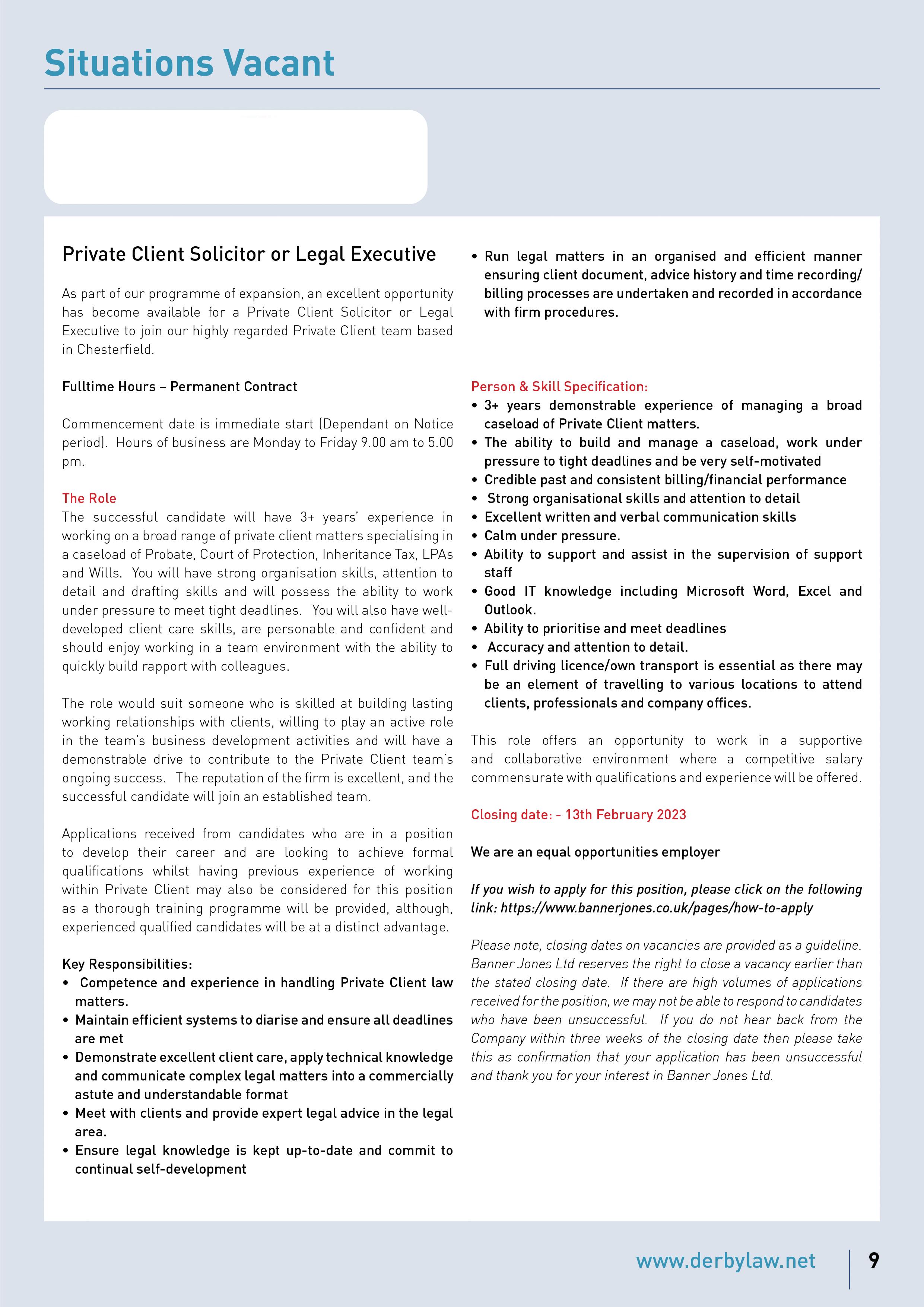
It may be that “The Law of Financial Derivatives” is an undiscovered “bundle of laughs” or that “Oil and Gas Contracts” would give a stand up lawyer material for a lifetime of comedy but if so why has Television not unearthed this trove of entertainment? No, it always seems to be the case that it is crime, petty or grand, to which the Media turns. Dear old Horace Rumpole’s appearances in the Chancery Division can be counted on the fingers of one finger. So also for litigation solicitors who have ventured beyond commercial litigation and personal injury into “a life of crime” it is usually the last which has provided the cases which remain longest in the memory.
So it is with me. It must be 50 years since the case of “the Bilsthorpe Bottoms” but it is still fresh in my memory. It began when, shortly after I was admitted, two youngish men presented themselves at reception. I had represented one of them a few months before in a minor motoring offence. I can remember nothing about that but he must have been satisfied with my efforts because he had returned – and this time it was rather more serious.
He and his friend came with summonses requiring their attendance at Southwell Magistrates on a charge of public nuisance or public indecency or something similar. Southwell Petty Sessional Division exists no longer. Like many rural Divisions and it has been subsumed into a much larger County Division, in Southwell’s case, Nottinghamshire. But in the 1970’s it was still independent and a character very much of its own – County gentry and the Church, and “old money” dominated the Bench and that privileged ethos permeated into the local police. It was almost Victorian in its outlook and business. Poaching, “lamping” hare coursing and the illegal gaming and petty crime connected to that, leavened the list. But apart from that the Division was genteel and “nice”. Except that, on the fringes of the Division there were a few “rough” mining villages, part of the then extensive Notts Coalfield. One of those village was Bilsthorpe, and the heart of Bilsthorpe was the “Bilsthorpe Miners Welfare”
My clients, as they became, had the following story: a few months previously they had set up a business as “Entertainment Agents” . As one of their first contracts the Management of the Bilsthorpe Miners Welfare asked them to “supply” two strippers to perform at the Welfare every Sunday Lunchtime for four coming Sundays, as a diversion for their mining customers from their weekly labours. My clients located two suitably qualified ladies and the contract was fulfilled to mutual and general satisfaction. On the fourth Sunday my clients attended the performance to collect the stripper’s remuneration and their commission. At the conclusion of the performance they were approached by a man, looking like a local in his “Sunday Best” , who introduced himself as Inspector Plod of the local constabulary. According to the evidence at the subsequent trial the following dialogue ensued:
Insp. Plod “ I have attended the last two performances by these women and both have been obscene and indecent”
Client A ( With a memorable “verbal” )“Obscene? – that was Art, pure Art”
Shortly after that exchange, the summonses I have referred to were served on my clients.
In due course we appeared before Southwell Magistrates. Given the patrician makeup of the Southwell Bench a conviction seemed inevitable. However, in the meantime someone at Nottingham C.P.S. had realised that they were going to have problems in securing convictions on the charges as drawn and withdrew them, and applied, successfully, to substitute a charge that my clients had “aided and abetted the keeping of a disorderly house” , the disorderly house being “Bilsthorpe Miners Welfare” . This turned out to be a big mistake because to get home on this charge they had to join in the “keepers of the disorderly house” , the Owners, and the employers of the Management who turned out to be “John Smiths (Tadcaster) Brewery” (John Smiths)
Now my clients had limited resources for representation but John Smiths had more firepower and in due course elected for trial in the Crown Court. More importantly they briefed one of the great
trial advocates of the latter decades of the last century the incomparable Gilbert ( “Gilly” ) Gray. At the time of this case Gilly was a member of Leeds Chambers (local to Tadcaster) and had just attained Silk. To readers who are unlikely to have heard Gilly, in court in his pomp, it is impossible to convey the power of his advocacy and his formidable court presence . He is best described as a cross between Horace Rumpole and Edward Marshall – Hall (if such were possible) – a force of forensic nature. The best our clients resources could afford was an able, but very young, counsel I knew from University. Fortunately we had Gilly on our side.
Apart from Gilly’s advocacy the trial involved what was probably the most remarkable circumstance of my professional life. The trial took place in the Court Rooms then in the old Council Offices in Nottingham very close to Shakespeare Street. Somehow, no doubt in his researches for the trial(!) Gilly had discovered that in the “luncheon adjournment” on the second day a strip show was due to take place in a pub in Shakespeare Street. So when that time came he insisted that all members of the defence teams (clients of course excepted) went with him to see the show. The pub was heaving with customers. Frankly I can remember nothing of the show, but will never forget Gilly, in his court dress, wing collar and tabs, standing on the pub windowsill getting a view over the crowd, waving his wig furiously and shouting encouragement to the performers.
And I will always remember the opening of his closing address to the Jury as he turned on the rhetorical firepower for which he had been paid:
“Members of the Jury – this week the news has been full of tragic events around the world, wars in Indo China, earthquakes in South America, floods in India and starvation in Africa. And what has occupied all you here for the past three days? Wiggling Bottoms in Bilsthorpe. Bilsthorpe, Members of the Jury not even Frinton on Sea”.
Unsurprisingly John Smith’s (Tadcaster) Brewery and my clients were all acquitted.
John Calladine

I receive many requests for help in family cases, often several times a week, typically from the wife who considers that her husband is not making full and correct disclosure of his financial affairs. What am I able to do to help them? This is a personal note setting out my understanding of the position, and I provide it here so as to avoid the need to give the same explanation repeatedly to those many unfortunate ladies.
Typically, a lady does a Google search where my name comes well up on page one. She looks at my website, views the videos, reads the war stories, and concludes that I am a helpful character with a wealth of experience (I am, I am!) who can help them to find the husband’s hidden assets or the lies in his disclosure.
In the old days, that was certainly the case, and I have had some stunning successes, as may be seen in my case studies - https:// chrismakin.co.uk/case-study/matrimonial/. But these days it’s different. Except in the multi-million pound cases seen in the national press, or where a party is so blatantly dishonest that the court recognises the need for an investigation – and this is very rare –the court will only approve the appointment of a forensic accountant to act as a Single Joint Expert (SJE), who acts for both spouses, but with an overriding duty to the court.
This works well where the main function of that expert is to value the business which one party will be taking out of the marriage on a clean break (see Case 3 in my matrimonial case studies – “Divorce the spouses, but don’t divorce the companies”) - I have done hundreds of such valuations – or where an expert is required to opine on the ability of one self-employed spouse to pay maintenance to the other. But where there is serious doubt about a spouse’s disclosure, but not egregious enough for the court to recognise the need for an investigation by a forensic accountant, two main difficulties arise.

The first is that if the wife or her lawyer thinks that I would be a suitable SJE and puts my name to the other side, I would be typecast as the wife’s man, and the husband would want his own man. Result: deadlock, which can be resolved only by one side or the other giving in, or by both sides putting their expert’s CV before the court for the judge to decide who shall be the SJE. And that leads to delay and expense.
The point is that an expert can produce a report and give evidence at a hearing only with the court’s permission.
There is an alternative: the forensic accountant can act as expert adviser. He is not on the court record, but works in the background, providing assistance to the lady’s lawyers. He cannot appear at court (except in the background, perhaps passing notes to the barrister), and there is no prospect of the husband being ordered to pay any part of that accountant’s fees. And the investigating accountant can use only the evidence produced, which may be limited.
So to conclude, if a business valuation is required for a clean break, I can act as SJE as I have done many, many times before. And within limitations, I can act as expert adviser. But for me to act on the record as expert for one party, the other spouse’s shortcomings in disclosure would have to be egregious (outstandingly bad or shocking) and if that situation is suspected, I would recommend that the party concerned should first speak to their lawyers, not to me, about whether the court might appoint a party expert acting just for that side.
I remind readers that I offer an initial review of any case without obligation (see “How long’s a piece of string” on my fees page at https:// chrismakin.co.uk/fees-and-gdpr/), but that review should be done only when the lawyer considers there is a chance of the court agreeing to have a party expert.
Of course, if a straightforward business valuation is needed, I’m your man!
Biog: Chris Makin has practised as a forensic accountant and expert witness for 30 years, latterly as Head of Litigation Support at a national firm. He has given expert evidence about 100 times. He also performs expert determinations.

Chris is a fellow of the Institute of Chartered Accountants where he has served on the Forensic Committee, and as an ethical counsellor; he is a fellow of the Chartered Management Institute, a fellow of the Academy of Experts where he serves on the Investigations Committee, and a mediator accredited by the Chartered Arbitrators.
He practises as a mediator, from his home in West Yorkshire and his rooms at 3 Gray’s Inn Square, London WC1R 5AH, telephone 020 7430 0333. He has mediated 100+ cases so far, on a huge range of subjects, with a settlement rate to date of 80%. For more see his website with videos:
www.chrismakin.co.uk
chris@chrismakin.co.uk


into the case? Take time to find out about unconscious bias (https://www.ewi.org.uk/ News/ewi-in-conversation-with-fredericosingarajah-unconcious-bias) and how you can avoid it.
4. Make clear the substance of your instructions
As the year draws to a close, I can’t help but think that it has been an interesting year for Expert Witnesses. There have been several high-profile cases which have reflected the best and worst in Expert Evidence. But one thing seems clear, the number of judgments which mention Expert Witnesses and their conduct is definitely on the rise. And unfortunately, the negative comments in judgments outweigh the positives.
But this is to be expected. It is normally when things go wrong that the Judge will comment on the conduct of the expert. And whilst we have highlighted many a judgment where this is the case, I am choosing to be positive and focus on my top ten takeaways for the year.
1. Always maintain impartiality
To borrow a line from a well-known Christmas song, “although it’s been said many times, many ways” ensure you always maintain your independence. If you are unsure whether you are straying, ask yourself – would I have the same opinion if I was instructed by the other side. Nothing harms your credibility more than being partisan.
2. Be credible and declare possible conflicts of interest
And on that note, be aware that the opposing side may try to attack your credibility so don’t give them any ammunition with which to take a shot. If you think there is a possible conflict of interest, raise this with your instructing party immediately and take advice.
It was nice to see a judge rejecting one such claim where counsel attacked an expert’s credibility. (https://www.ewi.org.uk/News/ attack-on-experts-credibility-rejected).
3. Take time to consider any unconscious biases which may impact on your opinion
When you are assessing a claimant, visiting a site, considering the evidence, are you unconsciously projecting your own biases
I’ve been taking a look at the assessments of reports undertaken by the Membership Committee and there are two areas that seem to cause more issues than others. The first is around instructions. Remember that you do need to make clear the instructions you have received from your instructing party. This is also a good method for checking to make sure you have answered all the queries asked of you.
5. Make sure you offer a range of opinion and, if you can’t, state why
The second area that seems to get marked down is the range of opinion with applicants not providing a range of opinion and not stating why they cannot give a range of opinion. Sometimes it is right that you cannot offer a range of opinion, but you should be stating why this is the case.
6. Make sure your declarations at the end of your report are up to date
Spend the time to make sure you are using the most up to date declarations. Doing so enables you to retain credibility. The wrong one could undermine you in court during cross examination.
If you are in any doubt, you can access supporting guidance from our knowledge hub at: https://www.ewi.org.uk/KnowledgeHub

7. Remember that the Joint Statement is the Expert’s write up of their discussion Don’t be tempted to invite your instructing party or counsel to look at or make suggestions on the draft of the Joint Statement. This is your statement to assist the court in narrowing down the issues that are still in contention.
And if they ask to be involved, stay strong and tell them to step back.
Patricia Andrews & Ors v Kronospan Limited [2022] EWHC 479 (QB) and Gary Pickett v David Balkind [2022] EWHC 2226 (TCC) are both salutary reminders of what can happen if you do not heed the advice.
8. Be open – and get any communication with other parties in writing.
Transparency and accountability are key: whatever is done needs to be done overtly.
9. Make sure you assist the court
Remember that you are helping the court understand the issues. In his keynote speech at our conference this year, Lord Hamblen suggested the best way to achieve this was through clarity, structure, reasoning, and by building trust and confidence.
Some nice examples of where experts have done this include the following:
“He gave his evidence in a forthright and measured manner. He answered the questions put to him clearly accepting the limits of his knowledge in relation to certain matters. He made concessions in relation to certain items such as betterment to the boiler installation and the extent of the alleged furniture damage. I think that overall Mr. Lane was seeking to assist the Court and that he well understood that he had an independent role to perform.”
- Coldunell Limited V Hotel Management International LtdAnd congratulations to EWI Member, Jill Ferrie, who was mentioned in a recent judgment as being “a balanced and helpful expert”.
10. Keep up to date with the latest developments in Expert Evidence
And finally... Whilst you are all (I am sure) keeping up to date with the latest developments in your areas of expertise, make sure you also take time to consider the latest case updates in Expert Evidence. At the least keep an eye on our monthly e-newsletter to identify key things you need to be aware of. But don’t forget that EWI Members now have access to a wide range of older (but still highly relevant) pre-recorded webinars.
Keeping up to date with your professional development is an essential part of maintaining your credibility as an Expert Witness.
So with that I wish you every success as we head into 2023.
Simon Berney-Edwards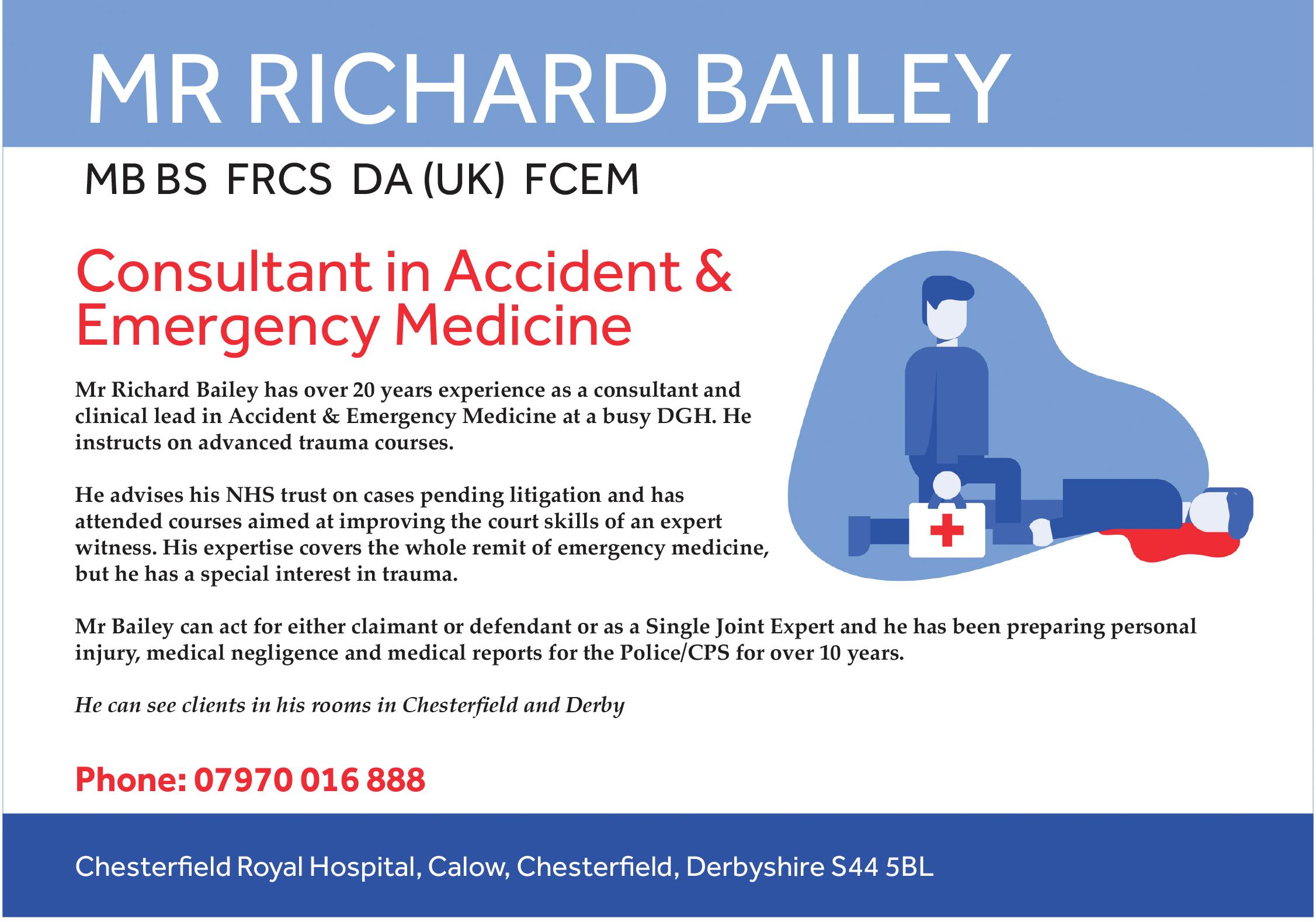






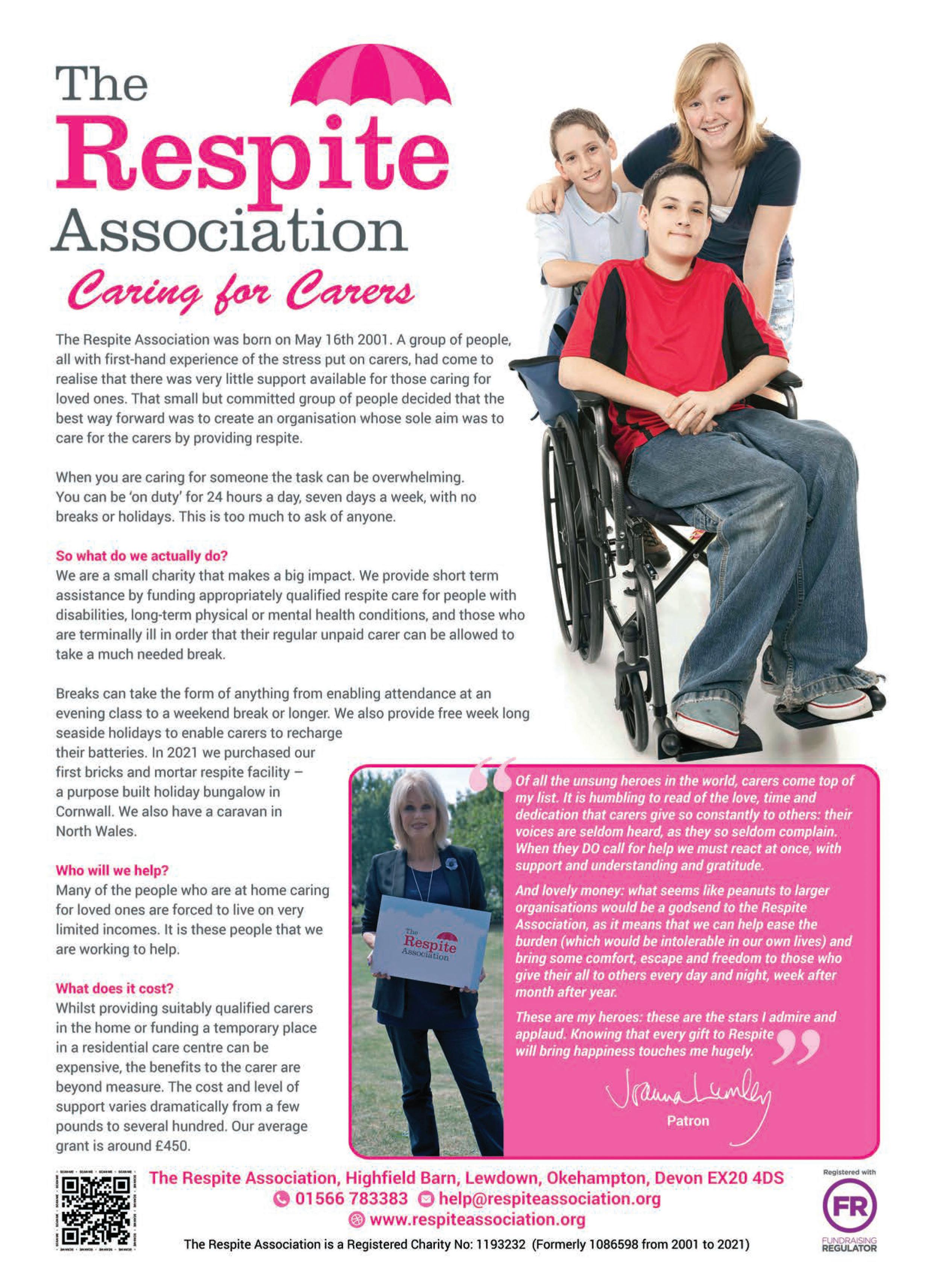
New figures released today show that 2022 was another strong year for charitable gifts in wills in England & Wales.
In 2022, Smee & Ford identified 36,992 charitable estates out of a total of 231,582 estates processed that included a will; meaning that one in six wills processed included a gift to charity.
The total value of charitable estates exceeded the prediction of £20bn in Smee and Ford’s September update, finishing on £21.3bn. And the number of individual bequests within charitable estates granted probate in 2022 was also the highest number they have ever recorded, finishing on 123,298.*
“It is encouraging to see that 2022 was another strong year for legacy income and that the number of charitable bequests recorded in wills has reached a new record.”
 - Polly Avgherinos, Managing Director at Smee & Ford
- Polly Avgherinos, Managing Director at Smee & Ford
The value of legacies continued to be significant for charities in 2022, with 31% of legacy income coming from bequests worth over £500k. A further 22% came from bequests valued between £100-£250k, meaning over half of all legacy income in 2022 came from high value bequests worth over £100k.
At the time of writing, not all organisations have yet reported their final accounts to the Charity Commission, so the final legacy income figure for 2022 is not yet confirmed, but as a conservative estimate Smee & Ford predict it may sit at around £3.5bn.
“In today’s volatile economic environment, it’s hugely encouraging that gifts in Wills continue to be such a significant and vital source of income for UK charities. More and more fundraisers tell us that legacy income is what’s enabling them to continue delivering services and, perhaps what’s most exciting, we’re seeing growing recognition among senior management of the importance of shoring up legacy fundraising teams

and investment to protect their charities’ futures.”
- Allan Freeman, Chair of Remember A Charity
The full and final statistics will be shared in Smee & Ford’s annual Legacy Trends report, released later this year. You can register at https://smeeandford.com/legacytrends-2023-register-interest/ to request a copy as soon as it is available.
*Please note, these statistics relate to England and Wales only.


In January 2023, we sent a pre-action letter to UK government challenging its decision-making as unlawful and irrational.
“We argue the lord chancellor’s decision not to remunerate solicitors by the bare minimum 15% recommended by the government’s own independent review is unlawful,” said our president Lubna Shuja
The same can be said for the decision not to take action to address the risk of local market failure.

We’re asking the government to withdraw both decisions and reconsider them within a mutually agreed timetable.
If not, we will consider whether it’s appropriate to issue a judicial review seeking an order to quash them.
“We argue both decisions are irrational and inconsistent with the constitutional right of access to justice,” continued Lubna.
We have also invited the government to agree to mediation, conducted by an
appropriately experienced senior lawyer or former judge.
Ignoring its own review
Lord Bellamy’s report rightly focused on the resilience and sustainability of the crisis-hit criminal justice system.
The system is clearly collapsing due to inadequate levels of government investment, as shown by huge court backlogs, the crumbling court infrastructure, the lack of judges and lawyers duty schemes on the brink.
“The government is choosing to ignore the economic advice and analysis which Lord Bellamy’s review team painstakingly produced, using data the government itself supplied. Instead, the government is implementing policies that run against the rationality of the review it commissioned and accepted,” said Lubna Shuja.
“Criminal defence solicitors provide an essential service within that system but they simply won’t be there if the profession is not economically viable – and the government’s decisions mean it will not be,” she added.
The current policy will have wide consequences for:
• small businesses operating in the criminal defence sector
• the criminal justice system as a whole
• thousands of victims and defendants seeking justice
“What is so frustrating is that a rational policy path was identified in Lord Bellamy’s comprehensive review and largely accepted, including 15% for barristers, but then the key recommendation affecting solicitors – who were viewed as being in the most ‘parlous state’ – was rejected.
“The lord chancellor failed to provide any reasons for ignoring that key recommendation even though there was a legitimate expectation that such reasons would be given. Without reasons, we can only conclude that decision is irrational.”
“Solicitors are basically thinking this government is not taking this seriously. Why are we wasting our time?”

Across the world, the ability of children or indeed young adults to make decisions about issues concerning themselves is full of dilemma. Under UK law, the line between childhood and adult hood is 18 years of age 1; the age of majority. This means for example, that an individual can of their own volition, vote, enter contracts (credit cards, take out loans) buy tobacco or get a tattoo. The law then allows for capacities at each age from 10 through 17, though in this article with regard to DNA testing, we will single out age 16, as now armed with a National Insurance number, minors may join the Army, get married, drink alcohol in a restaurant, get a full time job and have sexual intercourse. This is perhaps appropriate for most in todays’ UK society.
When it comes to medical treatment, then the law is very clear that the age of consent to a procedure is 18 and after this age, individuals have as many rights as adults. Under some circumstances, 16 year old individuals can make medical decisions without consent of their parents and at younger ages than that, the degree of independent consent is reliant on their competence to understand the procedure – age alone is a not a sufficient criterion. Specifically, the test of these criteria is the Gillick test2 which relates to a child under 16 receiving contraceptive advice without her mother’s consent. Over time this has been used by the medical fraternity to gain consent from under 16s, provided they can demonstrate understanding of the nature and implications of the proposed treatment. A subset of this principle is the Fraser guidelines which specifically relate to welfare advice for under 16’s.
When considering a DNA test to determine a biological relationship (such as a paternity test), then it is important to remember that a human identity or paternity test is not a medical matter; it is quite different to other types of genetic test which are used for example, for disease diagnosis. The relevant legislation is the Human Tissue Act 1984 and Human Tissue (Scotland) Act 20063, which as an aside to its intention to clamp down on the unauthorised use of human tissue as revealed in the Bristol Royal Infirmary enquiry4, has captured the need for consent for the analysis of samples for a DNA test and which are intended for human identity testing. The Department of Health has produced helpful guidance5 and a good practice guide for companies like our own.
In addition, the Ministry of Justice operates an accreditation system for bodies “that may carry out parentage tests directed by the civil courts in England and Wales under section 20 of the Family Law Reform Act 1969”. This list is reconsidered every year and requires DNA testing companies to hold the key accreditation for calibration and testing laboratories, ISO/IEC 17025. We are pleased to say that we have been on “the list” for more than 14 years.

With regard to consent, then the first principle derives from the established laws of consent and the second from the Human Tissue Act 2004, where consent is required for possession of material from a human body that contains human cells (a buccal sample) with the intention of analysing the DNA. We must be satisfied that whoever is providing the consent for a DNA test is authorised to do so. We for example, take steps to ascertain the basis for parental responsibility and as the DNA testing organisation providing the test, are satisfied that those consenting to the taking of a sample from the child, are authorised to do so. It is also important that the consent is given on the understanding that the nature and possible consequences of the test are understood.
Parental Responsibility refers to "all the rights, duties, powers, responsibilities and authority which by law a parent of a child has in relation to the child and his property" 6. In real terms, this means having input into substantial matters affecting a child’s well-being, such as education, religion medical treatments and appointing a guardian as well as having input with regards to holidays and extended stays outside the family home. Importantly, this also relates to legal proceedings involving the child and the registering/changing of a child’s name on a birth certificate. De facto , this applies to the non-medical matter of human identity testing using DNA technology, commonly known as for example, a paternity, sibling or indeed a grand-parentage test.
So who has Parental Responsibility for a child? Well firstly, the mother always (and automatically) has Parental Responsibility. Intuitively, we might think this named individual would necessarily be the biological mother (the individual who gave birth to the child) and this is generally the case. Exceptions occur in the case of surrogacy where the surrogate mother will have Parental Responsibility until it is relinquished with a Parental Order. Interestingly, if a surrogate mother is married, their partner will also have Parental Responsibility for the child.
There are various additional ways that a father can gain Parental Responsibility over a child, these are: a) entering marriage or civil partnership with the mother, b) obtaining a Parental Responsibility order from a court, c) using a Child Arrangement Order, being named as a resident parent, d) having a Residence Order in place (prior to 22nd April 2014) and e) entering a Parental Responsibility Agreement with the mother. If there has been a marriage/civil partnership and then a divorce/dissolution, then the Parental Responsibility rights are retained.
Automatic Parental Responsibility is not conferred on unmarried biological fathers, unmarried partners (male or
female), grandparents, other biological relatives or a step-father/step-mother. Unmarried/non civil partnership fathers who (re-) register their names on a birth certificate after 1st December 2003 can gain Parental Responsibility.
We always ask for the mother’s consent to a DNA test if the child is under 16 and encourage her to participate in the test by giving a DNA sample. Our most common question is: “Why do you need that? I know I am the mum.” Well, we are each made up of half of the mothers DNA and half of the fathers – though until we test it, we don’t know which half ! By determining which portion comes from the mum, we can then be sure which DNA relates to the father and this greatly improves the statistics of an inclusion, i.e. that the man is in fact the biological father of the child.
If you have a case requiring a DNA test to establish parentage or would just like some advice on how to establish a human relationship using DNA, then please contact us, we would be please to help.
Please see: http://www.dadcheckgold. com.
Tel : 0191 543 6334
e-mail : sales@dadcheckgold.com

About the author : Dr Neil Sullivan , BSc, MBA (DIC), LLM, PhD is General Manager of Complement Genomics Ltd (trading as Dadcheck®gold).
Complement Genomics Ltd (trading as Dadcheck®) is accredited by the Ministry of Justice as a body that may carry out parentage tests directed by the civil courts in England and Wales under section 20 of the Family Law Reform Act 1969.
Citations
1 Family Law Reform Act 1969
2 Gillick vs West Norfolk and Wisbech AHA and DHSS [1985] 3 WLR (HL)
3 https://www.legislation.gov.uk/ ukpga/2004/30/contents; https://www. legislation.gov.uk/asp/2006/4/contents
4 http://www.bristol-inquiry.org.uk/ interim_report/toc.htm
5 https://www.Wales.nhs.uk/ documents/DH_082624.pdf
6 The Children Act 1989, s3(1)
Personal relationships are still the heartbeat of business success, despite the increasing use of technology. Personal relationships convey how we value one another. Personal relationships enable us to have empathy with one another’s situations.
In his seminal book, “How to win friends and influence people,” Dale Carnegie wrote
which conveyancers feel add value to their business.

Don’t get me wrong, consolidation has brought with it huge advances in technology and customer experience. Gone are the days of endlessly calling suppliers to order reports, collating them manually, printing off reams of paper and hand delivering the search to the office…. and good riddance too! With the exception of local authority searches, most of the reports are now available same day, with many returned in minutes.
I recently won back a client from a rival supplier. When I asked what it was that brought them back to us they said that they felt as though they were a number, rather than a client. It was the personal touch that was missing from their communications; they didn’t feel as though they ever spoke to the same person twice. There wasn’t a familiar voice at the end of phone when things went wrong (as things inevitably do in conveyancing!).
Business relationships then are as much about understanding the challenges we all face in our daily encounters.
The search industry has seen significant changes in recent years. Massive consolidation has seen so many of the traditional search companies swallowed up into larger corporates. We have to find ways of differentiating our service offerings, building that trust in client relationships, and delivering services

The delivery platforms are slicker, smarter, more intuitive and spot potential risks that might need to be accounted for, and errors in search requests. But some of this technological advancement has come at the expense of good, old-fashioned customer service. The personal touch.
Do we rely on technology too much? Are chat bots, apps and portals what our clients really want and need? What happens when things go wrong? People need reassurance, they need to be able to pick up the phone, or send an email, and feel as though somebody is taking a personal interest in resolving their issue rather than “chat” to a faceless bot or send messages via portals.
In our experience 90% of orders go through with little to no intervention required. But that 10% is where relationships are made and broken. This is where knowledge, experience, and expertise really make a difference. Recognising that the conveyancer is almost certainly under pressure, whether it be from the client, agent or the other side, and being able to take that weight off and deal with the issue through to completion is a critical part of the business relationship.
Whether it’s a query on a report back which requires clarification, or chasing up an expedited service. It’s about trusting that the job is going to get done right, first time.
“If there is any one secret of success, it lies in the ability to get the other person’s point of view and see things from that person’s angle as well as from your own .”
Winning friends and influencing people is all about understanding their situation and being empathetic to their challenges while excelling at service delivery

Many legal firms are failing to support the mental health and wellbeing of their employees, a survey of companies and staff has revealed.
Despite a strong demand for help with the cost-of-living crisis and stress and anxiety, employers saw supporting staff morale as low on their list of priorities, according to the YouGov poll.
Where support was offered, in the form of wellbeing advice and counselling, take-up was low, suggesting it did not always meet the needs of staff, the findings reveal.
The online poll of 3000 British employers and employees – commissioned by welltech company Frog Systems and conducted last December – showed that 59% of legal firm staff required support for stress and anxiety, while 44% said they needed help to get through the cost-of-living crisis.
In addition, 51% said they would benefit from support from their employer to help cope with grief and loss.
However, only 37% of the legal firms surveyed said they regarded improving staff morale or encouraging healthier lifestyles as their responsibility, according to the poll. They listed attracting and retaining talent and improving productivity as their main priorities.
The survey also highlighted that, while outlay on support for staff mental health and wellness was higher than in other sectors, only 23% of employers in the legal and professional services sectors more generally spent nothing at all, and 35% spent £100 or less, per-employee-per-year.
When asked who they would go to for help, only 2% of legal staff said they felt confident about going to their boss or a work colleague if they had a problem in their personal life or with their finances. More people said they would search the Internet before going to their line manager with an issue.
Those working with law firms and their staff to address employee wellbeing said the findings demonstrated an urgent need to address a growing problem.
Elizabeth Rimmer, CEO of LawCare – a mental wellbeing charity for the legal profession – said: “Despite the range of wellbeing supports on offer in law firms, it is telling that in this poll only 2% of legal professionals would feel confident in talking about their wellbeing with colleagues.
“EAP programmes, educational seminars, mindfulness, and gym sessions don’t create a working environment that is psychologically safe, where people feel valued and able to talk with colleagues about concerns. It is time to widen the approach to wellbeing from a focus on individuals to looking at how organisations foster a culture that supports the mental wellbeing of their people, and this responsibility lies in the boardroom.”
Henrietta Jowitt, an advisor to the Mind Forward Alliance and a former CBI deputy director general, said: “Most leaders are focussed on attracting and retaining talent and improving productivity, and yet a third of them spend nothing on employee wellbeing. They need to make this connection.


“Wellbeing is an output – it is the result of a whole range of inputs that support your people. It is not a package, off the shelf. If you don’t understand your colleagues’ needs and look after their wellbeing, so that they feel they are safe, belong and are supported in a way that works for them, they will neither stay nor produce their best work.”
Psychologist Peter Abrahamsen, who works with stressed lawyers, said: “My typical lawyer client is at crisis point from excessive and sustained pressure at work directly affecting their mental and physical health. They are disillusioned by their profession and struggle with the effects on their home life which is often falling apart.”
Compared with staff in some other sectors, those working in the legal sector and professional services appeared to receive similar benefits focused on traditional offerings such as Employee Assistance Programmes, life insurance, private medical care and perks and discounts, however only around one in four used them if at all.
Phil Worms, CEO of Frog Systems, said the report showed a gulf in trust in the workplace around wellbeing support for employees.
“Whilst many employers seem to understand the emotional and physical challenges being faced by their employees, they don’t appear to be able to provide the right wellbeing tools and information to support them.
“Solutions which are reactive, standalone, ‘tick box,’ not trusted, or do not provide sufficient insight will not enable the deployment of early intervention and support strategies.
“By listening to, and understanding what employees need, companies can start to build stronger, more empathetic, and productive work environments. Access to wellbeing support should not be a lottery or a privilege.”
Notes:
• Frog Systems is a welltech company that was founded in 2015.
• The Company provides first line support to employees through its Ashia digital platform.
• Frog Systems is the first wellbeing provider in the UK to have achieved the internationally recognised We Invest in Wellbeing Gold accreditation from Investors in People.
• Frog Systems has raised over £2.1M in private equity funds to date.

